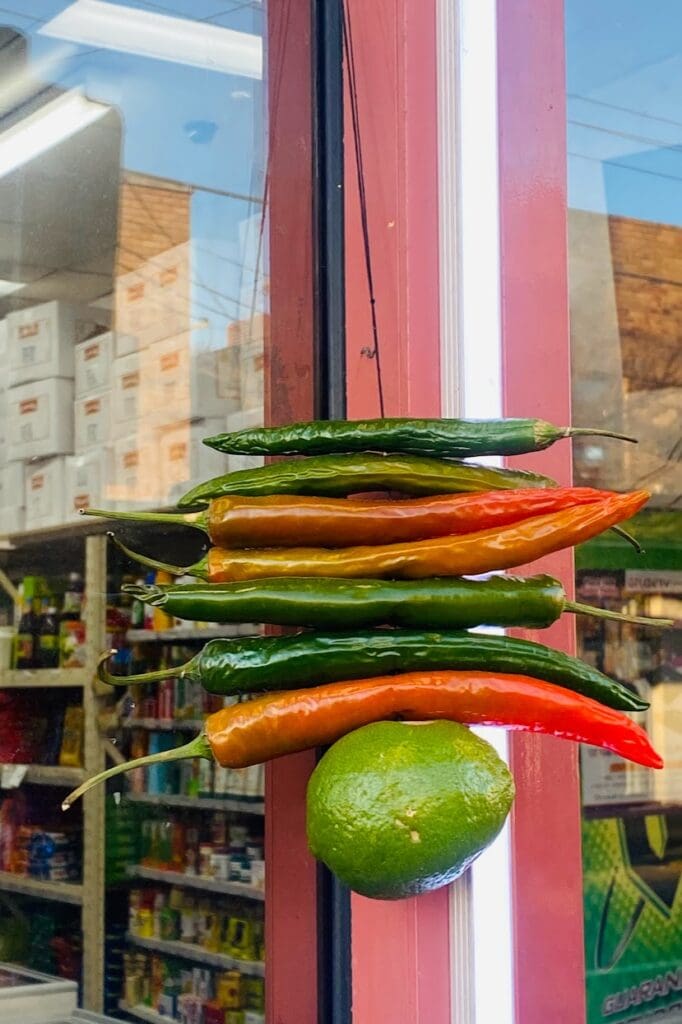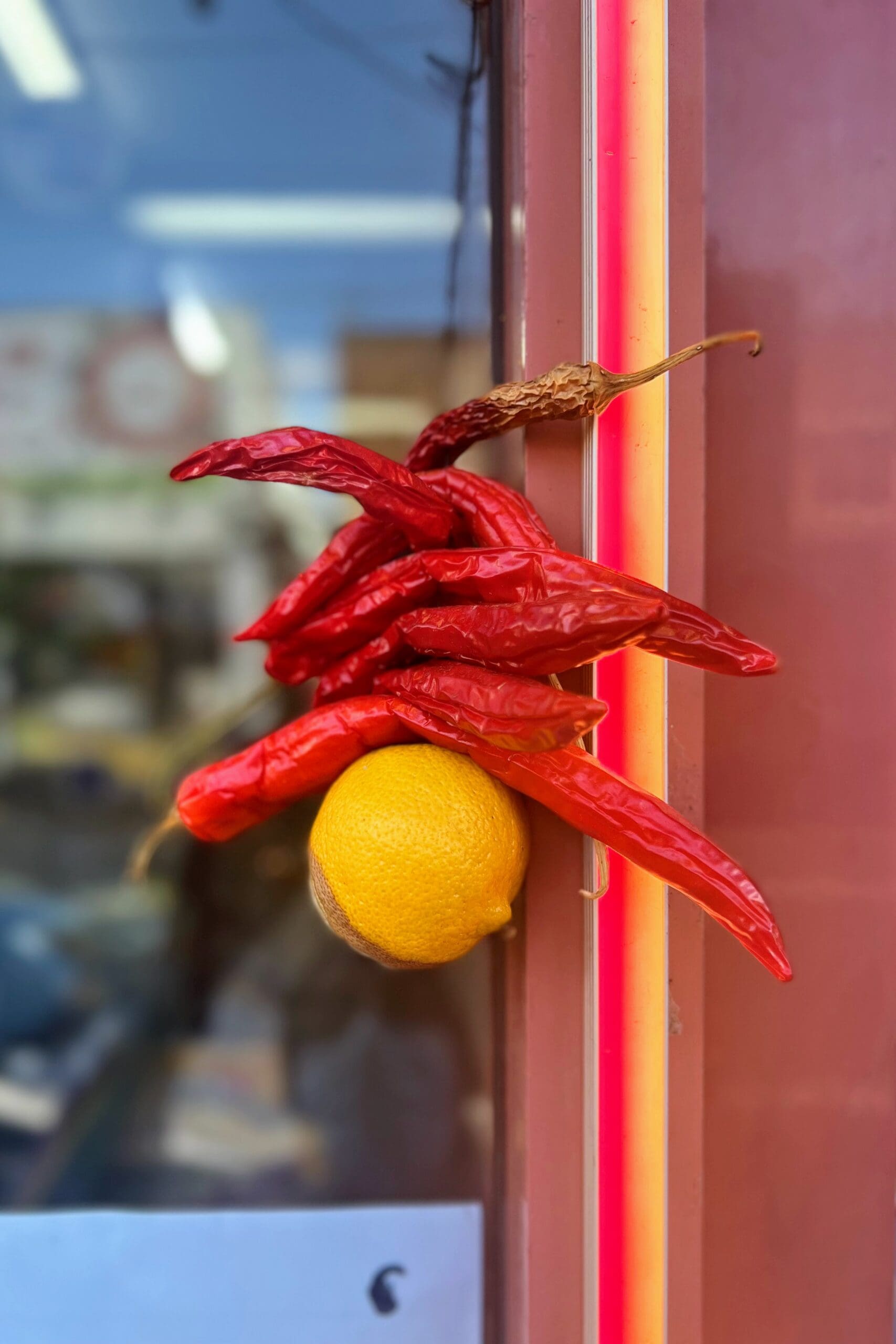Once again I saw a string of chillis and lemon hung in front of the Indian grocery store I have frequently visited since we moved to the neighbourhood.
Curious, I asked the owner what it was for. After looking at me weirdly, he explained that the Nimbu Mirchi (literal translation of lemon and chilli in Hindi) supposedly wards off the evil eye.
Interesting… Though I grew up with plenty of exposure to Indian culture, I don’t remember seeing it before. Nor during the countless time I roamed around Little India in Singapore. Coconut, lemons and marigold, yes ━ but never a combination of chillis and lemon.
Maybe, as the name suggested, it’s more of a North Indian tradition.

A little Google back home shed a bit more information on Nimbu Mirchi. As the shop owner said, it’s usually hung in place of business to ward off the evil eye – kind of like Indian Feng Shui, if I may.
I also learned that the “evil eye” here is explicit of Alakshmi, the twin sister of Lakshmi, the well-known Hindu Goddess of Fortune. The thing is, until today, I had never heard of Alakshmi, who, being the twin sister of Laksmi, is the Hindu Goddess of Misfortune.
Goddess Lakshmi likes sweet things; hence we, Hindus, display and offer sweets of festivals and holy days in our homes to invite her with the blessings, abundance and good luck she brings in. Meanwhile, her twin sister, Alakshmi, prefers pungent things, so hanging the Nimbu Mirchi outside will keep her busy outside and “forget” to enter the house, avoiding the misfortune she brings along.
It’s worth mentioning, as my Appa would try to rationalize the reason behind every superstition that lemon and chilli are natural pesticides. Therefore hanging a few of them in front of the store, especially in front of restaurants or food stalls, seems like an easy DIY fix to repel insects.
Either way, I am glad I learned something new about (my own) Indian culture today.
Follow me on Instagram @KultureKween for more recent updates.





